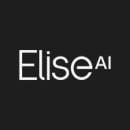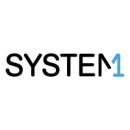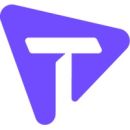Artificial intelligence tools play a huge role in our daily lives. They process code for us, solve problems independently and learn from past mistakes so we have free time to focus on the big-picture issues — ultimately making projects smoother, data cleaner and our jobs easier.
Top AI Tools
- ChatGPT
- Claude
- Perplexity
- Gemini
- Midjourney
- ElevenLabs
- Copilot
- Meta AI
- GitHub
Seventy-eight percent of companies have adopted AI in at least one business function, according to McKinsey. That number should only grow in the coming years, considering the number of companies using artificial intelligence has jumped 22 percent between 2022 and 2024.
AI is already a staple of the business world and helps thousands of companies compete in today’s evolving tech landscape. If your company hasn’t already adopted artificial intelligence, here are the top tools you can choose from.
Top AI Tools to Know
Price: Free with usage limits. Premium plans begin at $20 per month.
ChatGPT is a chatbot and AI tool developed by OpenAI. Powered by GPT-5, it helps answer user questions, summarize content or create new text content. ChatGPT can also provide access to DALL-E, an AI image generation tool.
Price: Free with usage limits. Premium plans begin at $17 per month.
The Claude chatbot, developed by Anthropic, is an AI tool that can create new text, chat with users and help answer their questions. It can also be used to describe images provided by users. For businesses, Claude has options for security compliance and jailbreak resistance to mitigate brand risk.
Price: Free with usage limits. Premium plans begin at $19.99 per month.
Google’s Gemini chatbot tool is used for answering questions, generating new text and images or analyzing visuals and audio. Gemini can also be integrated into Google Workspace apps like Gmail or Docs, which helps with tasks like email automation or document summarization.
Price: Free with usage limits. Premium plans start at $20 per month.
Perplexity is an AI search engine and chatbot. The platform can fact-check, provide research assistance and answer queries with up-to-date information. Recently, the platform expanded beyond web-based tools and launched a dedicated browser that aims to create a new web search experience when compared to other browsers.
Price: Free for individuals. Commercial plans start at $5 per month.
ElevenLabs offers a variety of audio tools for text-to-speech (TTS), voice cloning and AI translation. Used by large media companies and individuals alike, the company uses deep neural networks and transformer architecture to produce natural-sounding audio.
Price: Free for all users.
Meta AI is a generative AI tool built into Facebook, Instagram, WhatsApp. It is also available as a standalone web platform. Built on Meta’s Llama large language model, the tool interacts with users to answer questions and generate content, including images based on text prompts. Users can also use the tool via Meta’s smart glasses, which can process visual and audio information in real-time.
Price: Plans begin at $8 a month when billed annually.
Midjourney is a text-to-image AI tool that lets users create images from text prompts. Using the Midjourney website, writing anything in the “imagine” bar will begin generating images, which can then be refined and edited. Generated images can also be used as prompts themselves to generate other new images.
Price: Free plan with usage limits. Premium plans begin at $10 per month.
The GitHub Copilot AI coding tool helps users answer programming questions, get code explanations or see coding suggestions. It can also check log errors, create feature flags and have extensions added for more features. GitHub Copilot can be used on its own or with various code editors.
Price: Free with usage limits. Premium plans start at $30 per month.
Copilot is Microsoft’s general-purpose chatbot and AI assistant. Like other chatbots, it can answer user queries by generating natural-sounding text. It is a suitable option for content creation and task automation. Microsoft Copilot is also integrated into Microsoft 365 and acts as an assistant when working on Word, Excel and Powerpoint documents.
Other Apps and Platforms Using AI
Price: Free with usage limits. Premium plans begin at $49 per month.
Lindy helps businesses create, manage and share AI agents, essentially serving as their “first AI employee.” It allows users to build, scale and oversee an entire AI workforce on a single platform, requiring only a prompt and zero code. These custom AI agents can automate tasks across various business functions, including sales (e.g., converting leads), support (e.g., resolving tickets autonomously), marketing and operations.
Price: Free with usage limits. Premium plans begin at $8 per month.
Gamma is an AI-powered content creation tool that allows users to quickly generate visual presentations, documents and websites from their own prompts. Using a content idea or outline, Gamma handles the design and layout, enabling users to create polished, professional content almost instantly without needing to code or spend extensive time on formatting.
Price: Plans begin at $59 per month if billed annually.
Jasper is an AI assistant that helps teams create content in their own brand voice. It can write copy, create images or generate marketing campaigns that specifically align with a business’ tone and brand. Jasper also has chatting capabilities where users can brainstorm, ask questions and more.
Price: Free with usage limits. Premium plans start at $18 per month.
Synthesia is an AI video generator used to create and edit realistic videos. A video is generated based on a script written by the user, and can feature different layouts, AI avatars and voiceovers to bring it to life. Synthesia may help make informational, e-learning or other tutorial video content.
Price: Free with usage limits. Premium plans start at $12 per month.
Superhuman makes cloud-based software for correcting and polishing written media and communications. On its platform, users enter their original text and AI functions as a “writing partner” by scanning the work and making suggestions on where and how to improve the grammar, spelling, punctuation and clarity of the writing. Superhuman can be integrated into email, messaging and social media and is considered a gold standard for professional writers.
Price: Free with usage limits. Premium plans with unlimited usage start at $20 per month.
Notion makes organizational and productivity software tools designed to cohere multiple processes, functions and team members into a single simple interface for note taking, calendars, collaborative documents and other digital assets that require simultaneous and collaborative management. The platform offers an AI add-on that automatically fills spreadsheets, generates written content and performs research.
Price: Contact sales for custom pricing.
Flatfile offers an AI-powered data transformation and exchange platform for systems integration teams, data analysts and other business users. It provides AI-enabled search capabilities, AI-powered data mapping and tools for bulk data editing and cleaning. The company aims to have a more efficient and simpler way to build data collection, increase data quality and provide cost savings.
Price: Contact sales for custom pricing.
Wonderlic uses data and AI analysis to offer a talent acquisition tool called “The Wonderlic Test,” a pre-employment aptitude assessment that screens job candidates for abilities like information processing, problem solving and decision making. According to the company, the Wonderlic AI is far more efficient and objective than a human interviewer at identifying the core competencies that a candidate might have or lack, thus making the hiring process more equitable while ensuring a good fit between team members and new roles.
Price: Contact sales for custom pricing.
EliseAI is a machine learning tech company. Its signature product, Elise, is an AI that functions as support staff for property management in the real estate, housing and hospitality industries. Elise is trained via natural language processing, so she can understand and mimic colloquial language like slang, typos and multiple simultaneous questions, creating a human-like dynamic that returns intuitive responses.
Price: Contact sales for custom pricing.
Fusion Risk Management makes software for operational resilience, which strategizes how to proactively and reactively respond to various types of risk. The software uses generative AI, known as Copilot, to serve as an analyst. It looks at IT risk, crises, incidents and threats to business continuity. Copilot asks questions and makes suggestions to act on risk insights, and also composes executive reports.
Price: Contact sales for custom pricing.
Sendbird makes AI chatbots for use by e-commerce clients, who integrate them into digital storefronts, websites and apps as customer engagement tools. The bots provide standard customer service and also perform sales and marketing tasks like making proactive contact with leads. SendBird bots are built to mimic human communication, carrying on chat and voice conversations and understanding when to escalate the concern to human support staff.
Price: Contact sales for custom pricing.
Smartly builds AI-powered technology that supports ad campaigns for hundreds of brands around the world. Its solutions are designed to improve creative collaboration and campaign management through workflow automations, data-driven optimizations and visibility into real-time analytics.
Price: Free with usage limits. Premium plans start at $29 per month.
Developers rely on GitLab’s AI-powered DevSecOps platform to efficiently produce secure, high-performing software products. Its solutions include GitLab Duo, which infuses AI capabilities into every phase of the software development lifecycle, offering code suggestions, for example, and natural language explanations for code. GitLab’s technology has grown to support more than 30 million users in improving productivity.
Price: Plans begin at $9.99 a month.
Dropbox is a cloud-based file hosting service that aims to reinvent the productivity tool. Users can store, sync, sign and send large files nearly instantly within a streamlined interface. The Dropbox AI feature allows users to pose questions about or request summaries of files, while Dropbox Dash uses AI to power a universal search that coheres a user’s tools, content and apps into one search bar.
Price: Contact sales for custom pricing.
Salesforce is a cloud-enabled, machine learning integrated software platform that companies can use to manage their customer service, sales and product development operations. The company’s AI platform, called Einstein AI, acts as a smart assistant that can offer recommendations and automate repetitive data input to help employees make more data informed decisions, according to the platform’s site.
Price: Contact sales for custom pricing.
H2O.ai is a machine learning platform that helps companies approach business challenges with the help of real-time data insights. From fraud detection to predictive customer support, H2O.ai’s tools can handle a broad range of business operations and free up employee time to focus efforts on greater company strategies. Traditionally long term projects can be accomplished by the company’s driverless AI in hours or minutes, according to H2O’s site.
System1 focuses on customer acquisition through its RAMP, or Responsive Acquisition Marketing Platform. The platform, which relies heavily on machine learning, AI and data science, is built to identify, locate and access large numbers of high intent customers. By using AI, the platform can access hundreds of advertiser verticals, essentially finding points of access to customers everywhere they interact online.
Price: Plans start at $1,495 per year.
Tellius is a business intelligence platform that relies on AI technologies to help companies get a better grasp and understanding of their strategies, successes and growth areas. Tellius’s platform offers an intelligent search function that can organize data and make it easy for employees to understand, helping them visualize and understand the factors driving their business outcomes. According to Tellius’ site, users can ask questions within the platform to discover through lines in their data, sort hefty data and gather actionable insights.
MacPaw offers a lineup of apps iOS users rely on to keep their devices secure and organized. The company’s CleanMyPhone product is designed to reduce photo clutter on iPhones and iPads, and it comes with AI-powered features for analyzing photos and grouping them into folder categories.
Price: Enterprise plans start at $89 per month.
Kustomer makes a CRM platform equipped with AI-powered tools that help businesses deliver quality customer support. Its solutions include KIQ Agent Assist, which leverages generative AI capabilities to improve service representatives' communications with customers, and KIQ Customer Assist, an AI chatbot that provides personalized responses to resolve customer issues.
Price: Free with usage limits. Contact sales for custom pricing.
Navan is a travel and expense management company that leverages AI to help businesses streamline their corporate trip processes. Its solution uses AI to simplify booking, provide personalized travel recommendations and offer real-time expense tracking. Navan’s goal is to provide enhanced user experiences and operational efficiency.
Price: Contact sales for custom pricing.
Regal helps contact-center teams enhance conversations with its customer interaction software. It gleans customer behavior data to deliver automations, workflows and insights that optimize the pace, channel and timing for contacting potential customers. This enables customer service staff to effectively reach clients via text or phone to drive successful and personalized sales.
Price: Contact sales for custom pricing.
ServiceNow’s platform allows businesses to deploy AI agents and automate processes so they can improve efficiency across functions ranging from IT to human resources. Its solutions have uses in industries such as retail, financial services, healthcare and energy, and ServiceNow’s customers include 85 percent of Fortune 500 companies.
Price: Contact sales for custom pricing
Skillsoft serves as an edtech platform that offers books, videos and over 180,000 training courses. The company is dedicated to corporate learning and serves nearly 70 percent of Fortune 1000 companies. Its resources have been used by more than 45 million learners across 165 countries.
Price: Contact sales for custom pricing
Pluralsight is a learning platform that works to accelerate the technology skills and capabilities of modern technology workers. The company’s AI tool Iris aims to help users connect to their goals through conversational guidance. Iris enables learners to discover content, sort through labs and curate content based on personal learning objectives or team goals.
Price: Free with usage limits. Premium plans start at $4,000 per year.
Developers use Deepgram’s voice AI platform to incorporate human-like voice or transcription capabilities into their software products, and the technology allows enterprises to extract valuable insights from customer interactions. The company offers text-to-speech, speech-to text, voice-to-voice and audio intelligence APIs.
Price: Contact sales for custom pricing.
Motive is focused on developing technology that’s specifically designed to support operational needs across industries like logistics, passenger transit, construction, agriculture, utilities and oil and gas. Its platform for managing vehicle and equipment fleets comes with AI-powered automation and data intelligence capabilities that enable proactive maintenance, for example, and risk mitigation.
Price: Contact sales for custom pricing.
Hundreds of provider organizations across the healthcare landscape use Artera’s platform to deploy AI-powered virtual agents that can help save staff time, as well as improve communication and the overall patient experience. The company says its technology has reached more than 100 million patients.
Price: Pricing varies by product.
Atlassian’s AI-powered product, Rovo, leverages Atlassian Intelligence and Teamwork Graph to help unlock organizational knowledge and improve cross-platform search. By embedding AI into its tools, Atlassian aims to automate routine tasks and provide real-time insights so teams can work more efficiently. The global company, headquartered in Sydney, has offices all over the world.
Price: Contact sales for custom pricing.
Through Superblocks’ newest product, Clark AI, technical teams can “vibe code” using AI in a secure, enterprise-ready environment. According to the company, this tool ensures every app created meets enterprise standards and is continuously vetted through multiple safeguards. Based in New York, Superblocks is currently hiring for a variety of positions.
Price: Contact sales for custom pricing.
Domino Data Lab’s platform supports development, training and deployment for enterprise AI and machine learning. The company says its technology enables access to AI tools such as Jupyter and Spark, and its features are designed to help teams optimize security, compliance and cost control.
Price: Free with usage limits. Premium plans start at $16 per month.
Descript’s AI video editor allows users to edit videos by changing the text in the video script. Videos put into Descript are given auto-generated transcripts, where any changes like adding, editing or deleting words will edit the video (with words added as AI speech matching video voices). Descript also has editing features to arrange visuals, find key clips, translate videos and more.
Price: Contact sales for custom pricing
Credal’s AI-powered platform allows enterprises to make and deploy multi-agent AI assistants connected to a company’s internal tools and data. The company says it works to prevent data exposure and build up compliance, focusing on auditability, data redaction, fine-grained permissions and governance. Credal, founded in 2022, is headquartered in New York.
Price: Contact sales for custom pricing
Tildei is a conversational marketing platform that allows its client companies to engage with customers across social media and other channels to support long-term growth and improve relationships. Its artificial intelligence aims to learn user brands so it can power commerce and marketing experiences. The company says its AI can instantly respond to customer queries around the clock and adapt to customers’ preferred language in real-time.
Price: Schedule a call to hear more about pricing
Eve Legal provides plaintiff-side law firms with a platform to help them streamline case analysis, enhance decision making and optimize client outcomes. Its industry insights and user-centric approach allow users to simplify the entire case workflow, from client intake and case evaluation to drafting legal documents and managing discovery.
Frequently Asked Questions
What is an AI tool?
An AI tool is a software application that uses artificial intelligence (AI) technology to solve problems and perform certain tasks. Multiple types of AI tools exist to fulfill a variety of use cases — like creating content, performing research or automating tasks — across almost every industry.
How do AI tools work?
AI tools work by using algorithms to process large amounts of data, which help these tools “learn” how to do tasks similarly to humans. All AI tools first gain their knowledge from being trained on data specific to the tasks they’re built for. Some AI tools have algorithms that can intake new data and continually learn over time, while other AI tools will need human intervention to update their capabilities.







































